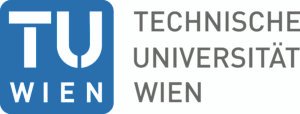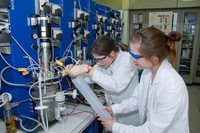
TU WIEN Faculty of Mechanical and Industrial Engineering

TU Wien is able to look back on a long tradition of scientific research and teaching, having been founded in 1815 as the k.k. Polytechnisches Institut, before being subdivided into 5 faculties in 1865. A year later, the first freely chosen rector was appointed. In 1872, the university was renamed the “Technische Hochschule” (Technical University), with the first-ever doctorates awarded in 1902. The current “Technische Universität (TU Wien)” name has been used since 1975. TU Wien attained full legal capacity as a result of the 2002 University Act. In 2015, the TU Wien was celebrating its 200th anniversary.

The main building at the Karlsplatz (1825) TU Wien has eight faculties lead by deans: Architecture and Planning, Chemistry, Civil Engineering, Computer Sciences, Electrical Engineering and Information Technology, Mathematics and Geoinformation, Mechanical and Industrial Engineering, and Physics.

TU Wien places great emphasis on the inclusion of students in research programmes (research-based teaching), considering this an important criterion encouraging new generations of scientists. TU Wien offers a broad range of studies from “A” like Architecture to “T” like Technical Physics. Also Doctoral Programmes are offered.

Bringing together solid basic research with scientific engineering work across various disciplines on the one hand and project collaboration with other universities, research institutes and businesses on the other, enables the university to conduct development work in almost all fields of technology. TU Wien has honed its research profile with the definition of five key research areas and establishment of cross-sectoral collaboration centres, and is set to intensify its efforts in the continuation of this process.

In a globalised knowledge-based community, international collaborations within research and teaching are an essential part of university life. Successful participation in international programmes, maintaining contacts on transnational networks and a strategic targeting of university partnerships all contribute to the successful positioning of TU Wien’s researchers and graduates at an international level.
